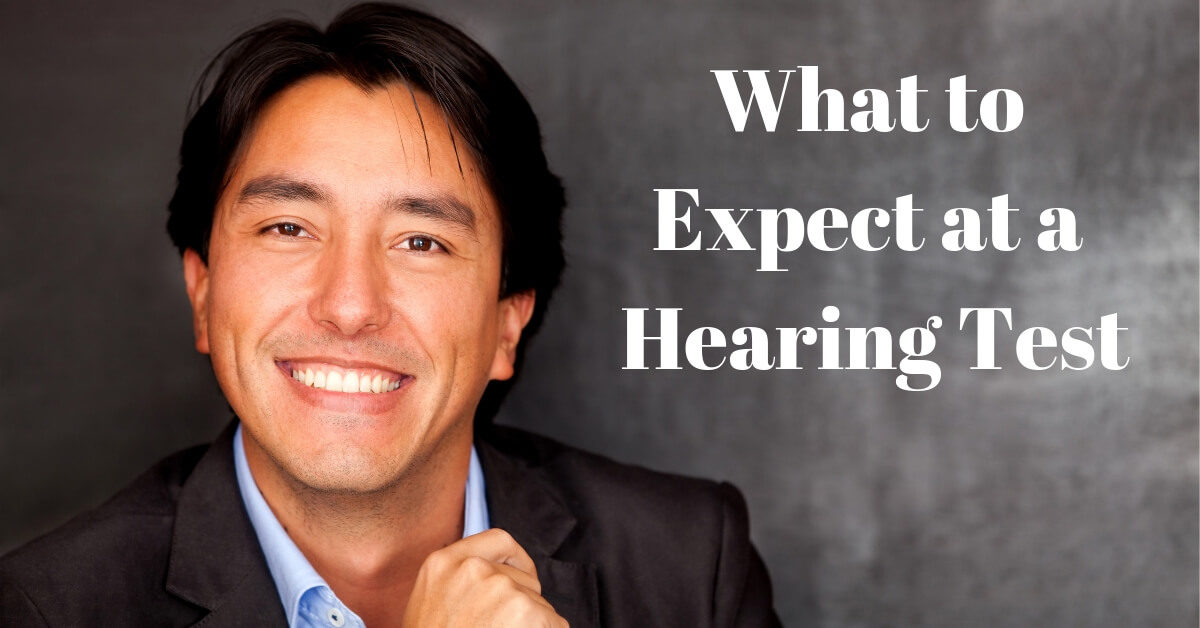[Are you considering taking a hearing test but aren’t sure of what is involved? Healthcare professionals recommend you take a test every year if you have experienced changes in your hearing or are over 60 years of age. Hearing tests are quick, painless and non-invasive. Here is an idea of what to expect when taking a hearing test at Absolute Audio.
1) An overview of your medical history
The first step is a meeting with your hearing healthcare provider at Absolute Audio. We will ask you a series of questions to understand your hearing experience better. The list of causes for hearing loss are vast, so information will be sought to rule out genetic causes for the hearing loss. Other causes for hearing loss include allergies, colds, ear infections or earwax. Questions will be asked to determine if you have any of these conditions. We will also want to know about the medication you take and whether you were recently exposed to loud noises.
2) A Physical Examination
After the questions, a routine physical examination with an otoscope usually follows. An otoscope is a cross between a flashlight and a microscope, and will help examine your ear canal to see if there are any blockages or injuries present. It is usually quick and minimally invasive.
3) Hearing tests
Now it is time for the hearing tests! Hearing tests are usually conducted in a quiet, small room which is built to keep external noises out which might impact on the test scores. You’ll be given headphones to wear that have wires hanging off of it, connected to an instrument called an audiometer.
Your practitioner will explain the tests to you. With the pure-tone test, you will hear sounds at varying frequencies and volumes in one or both ears. You then press a button if you hear the sound. The speech recognition test involves hearing short excerpts of people speaking, where you are required to repeat what has been said. These tests are designed to reveal the extent of any hearing loss which is present, whether it can handle sharp high frequencies and booming low frequencies. There may be additional test to follow afterwards.
4) Interpretation of your results
After your tests, your results will be recorded on an audiogram, which is a visual representation of your hearing abilities. It will answer questions like: What’s the quietest sound that you can hear? Which frequencies might you have challenges hearing? If you took a speech recognition test, the results are usually displayed as a percentage.
If the test comes back and hearing loss is present, the extent of the hearing loss will be displayed using a scale: If have mild hearing loss if you can’t hear sounds between 26 and 40dB. This translates to you having some problem with hearing other people in noisy environments. You have moderate hearing loss if you can’t hear sounds up to69dB. This level of hearing loss makes it hard to hear normal conversations. You have severe hearing loss if you can’t hear sounds between 70-94dB. If not using hearing aids, you will likely be heavily reliant on lip reading, contextual cues and body language to understand other people. If you have profound hearing loss, you can’t hear anything under 95db. This means that you can’t hear anything quieter than the sound level of a Boeing 737.
Our team will help you interpret the results and recommend some treatment options (if any). This is a great time to ask questions about what you can expect going forward, and how your family can help you if you do have hearing loss. The entire process will last about an hour.
Whether the test comes back positive or negative, it’s always worthwhile to have one done. Results which show you have normal hearing will give you the peace of mind and a baseline record for the future. Our team will provide invaluable information to help you maintain your hearing. If the test shows hearing loss, then it is better to act on this sooner rather than later.
Visit Us at Absolute Audio
Treating hearing loss has been linked to improvements in social connections, long term cognitive health and increased earning power, so getting your hearing tested is a very important step to preserving your future health and quality of life. Contact us at Absolute Audio today to schedule an appointment!

